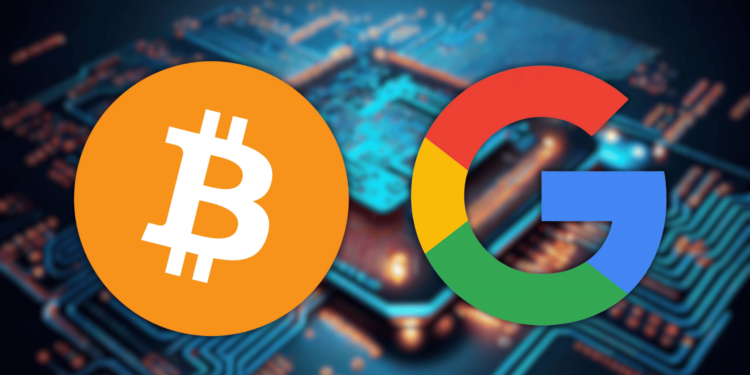• Google announced its breakthrough Willow quantum processor
• The Willow quantum processor can complete complex calculations in under five minutes
• This reignited discussions about the potential impact of quantum computing on blockchain security
Google’s announcement of its breakthrough Willow quantum processor has reignited discussions about the potential impact of quantum computing on blockchain security. With its ability to complete complex calculations in under five minutes, the Willow chip represents a significant step forward in quantum computing technology. However, concerns about its implications for Bitcoin and other cryptographic systems have come into sharp focus.
Willow Quantum Processor: A Leap in Computing Power
Google’s Willow chip is a quantum computing processor capable of performing calculations that would take traditional supercomputers an impractical amount of time. Unlike classical computers that use bits (0 or 1), quantum computers use qubits, which can exist in multiple states simultaneously, enabling them to process massive amounts of data and solve complex problems far faster.
The chip also boasts advancements in quantum error correction, a critical step toward making quantum computing practical for real-world applications.
Can Willow Break Bitcoin’s Security?
Despite Willow’s capabilities, it remains far from being able to compromise Bitcoin. Analysts at AllianceBernstein noted that the chip’s 105 qubits fall significantly short of the millions needed to pose a serious threat to Bitcoin’s encryption.
“Should Bitcoin contributors start preparing for the quantum future? Yes, but any practical threat to Bitcoin seems to remain decades away,” the analysts wrote.
If sufficiently advanced, quantum computers could theoretically break blockchains by cracking cryptographic keys, undermining hash functions, or dominating mining operations. However, these risks remain speculative, and the blockchain industry is actively exploring quantum-resistant cryptographic solutions.

Bitcoin’s Robust Security Infrastructure
The Bitcoin network is widely regarded as the most secure computing system in the world. To compromise it, a malicious actor would need to control more than 50% of the network, requiring an extraordinary amount of computational power.
Ethereum co-founder Vitalik Buterin highlighted this in his response to Alphabet CEO Sundar Pichai’s tweet about the Willow chip. Buterin asked, “What’s the largest semiprime you can factor?”
Factoring semiprimes—numbers that are the product of exactly two prime numbers—is central to breaking RSA encryption, a standard widely used in cryptosystems. Progress in semiprime factorization serves as a benchmark for assessing the security of cryptographic systems against quantum computing threats.
Implications for Cryptographic Standards
Current RSA encryption relies on key sizes of 2048 bits or more. For quantum computers to break these encryption systems, they would need to factor semiprimes of corresponding sizes. While Google’s Willow chip represents progress, it is still far from achieving this capability.
Buterin has extensively discussed the importance of quantum resistance in cryptographic design, emphasizing the need for systems that remain secure against quantum attacks. “For every cryptographic algorithm that quantum computers can break, we know that we have a replacement […] that quantum computers cannot break,” he said in 2019.
Quantum Resistance as the Future of Blockchain Security
The development of quantum-resistant cryptographic systems is already underway. This approach involves designing algorithms and systems that account for the potential threats posed by quantum computers. Buterin has stressed that the transition to quantum-resistant systems is a proactive step to ensure the long-term security of blockchain networks.
While a quantum computer capable of hacking Bitcoin is still years away, such a breakthrough would pose a threat far beyond cryptocurrencies. If Bitcoin’s robust network were compromised, it would signal vulnerabilities in virtually every system reliant on cryptographic security.
Google’s Willow processor highlights the rapid advancements in quantum computing, sparking renewed discussions about its implications for blockchain security. While the risks to Bitcoin remain theoretical and distant, the industry is actively preparing for a quantum future by developing resistant cryptographic solutions, ensuring the resilience of blockchain systems in the years to come.














